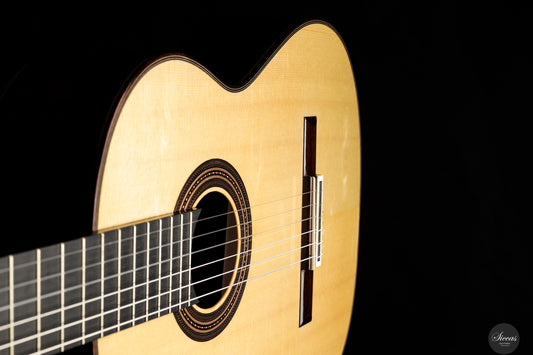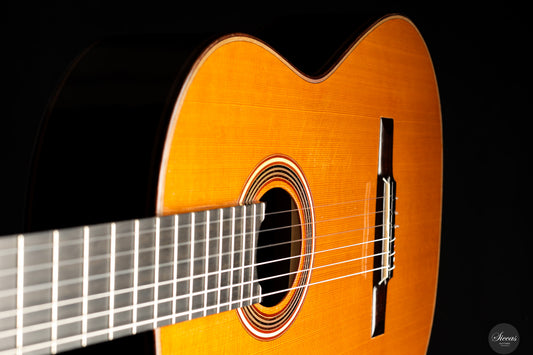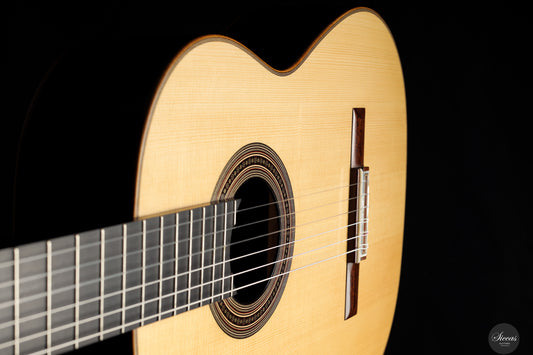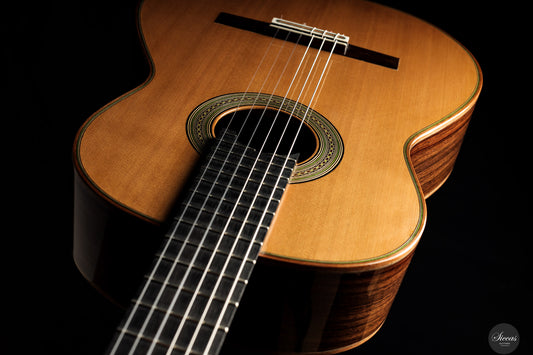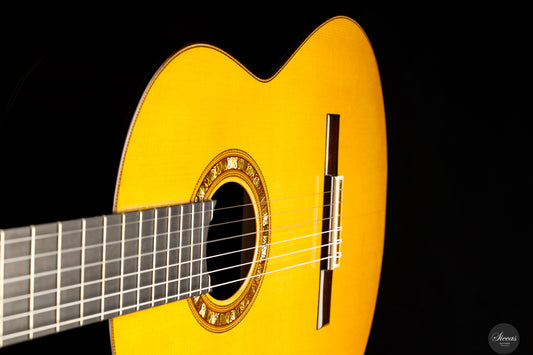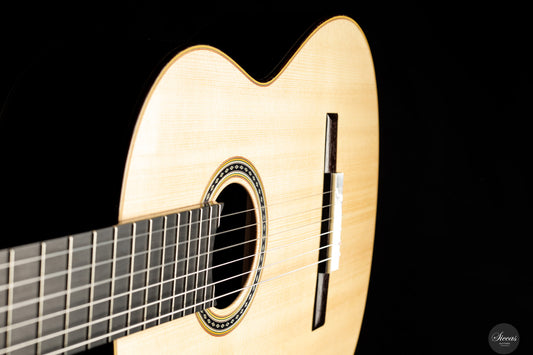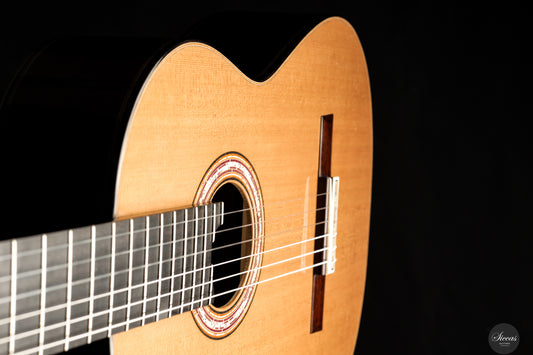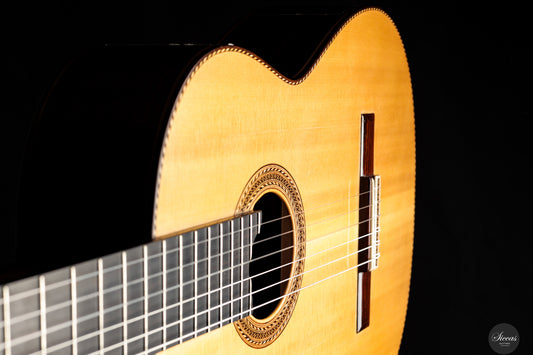
The Definitive Study of Famous Classical Guitarists: A Journey Through History, Innovation, and Influence
The classical guitar, with its warm nylon strings and rich, expressive tone, has captivated musicians and audiences alike for centuries. Over time, a few remarkable artists have not only mastered its complexities but have also transformed the way the world hears and understands the instrument. These great guitarists expanded the repertoire, developed new techniques, and redefined the guitar’s role in music—from intimate salons to the grandest concert halls.
1. Andrés Segovia (1893–1987): The Father of Modern Classical Guitar
Andrés Segovia is universally regarded as the father of the modern classical guitar. Before him, the instrument was largely confined to folk traditions and small gatherings. Segovia elevated it to the concert stage, giving it the respect and status of the piano or violin.
He commissioned and inspired new works from composers such as Heitor Villa-Lobos, Joaquín Rodrigo, and Manuel Ponce, creating a true classical repertoire for the instrument. Segovia’s refined technique and lyrical interpretation set a new global standard for guitar playing. His transcriptions of Bach, Handel, and other great composers demonstrated that the guitar could express the full emotional range of the classical tradition.
Segovia’s performances around the world captivated audiences and established the guitar as a serious concert instrument. His influence shaped nearly every guitarist who came after him—his legacy is still the foundation of classical guitar today.
2. Julian Bream (1933–2020): The Visionary of Guitar and Lute Music
Julian Bream was a British virtuoso who redefined what it meant to be a classical guitarist. He was as comfortable playing Baroque lute music as he was premiering modern compositions, and his artistry broadened the scope of the guitar’s repertoire.
Bream’s passion for Renaissance and Baroque music revived interest in early instruments like the lute. His expressive performances gave historical works new life and inspired generations of players to explore early music. He also collaborated with contemporary composers such as Benjamin Britten, who wrote the landmark Nocturnal after John Dowland specifically for him.
Renowned for his warm tone and poetic phrasing, Bream approached every piece with emotional depth rather than technical display. His dedication to both historical and modern music made him one of the most influential guitarists of the 20th century.
3. John Williams (1941–Present): The Technical Virtuoso
John Williams is celebrated for his extraordinary technical precision and clarity. Often described as one of the most flawless classical guitarists in history, he set new benchmarks for accuracy and articulation.
His recordings, including John Williams Plays Bach and the world-famous theme Cavatina from The Deer Hunter, brought classical guitar to a global audience. Williams has performed with major orchestras and collaborated with musicians across genres, from classical conductors like André Previn to flamenco artists such as Paco Peña.
Beyond his impeccable technique, Williams is admired for his open-minded approach to music. He explored jazz, world, and contemporary influences, showing that the classical guitar can cross boundaries without losing its essence. His artistry continues to inspire guitarists striving for both technical mastery and artistic versatility.
4. Paco de Lucía (1947–2014): The Flamenco Innovator
Paco de Lucía was one of the greatest guitarists of all time—a master who revolutionized flamenco and bridged it with classical and jazz traditions.
Though rooted in flamenco, de Lucía incorporated classical phrasing, harmony, and structure into his playing, giving birth to a new, sophisticated style. His breathtaking technique—lightning-fast picado runs and complex rhythms—set new standards for guitar virtuosity.
He collaborated with legendary musicians including jazz greats John McLaughlin, Al Di Meola, and Chick Corea, blending genres in groundbreaking ways. His interpretation of Rodrigo’s Concierto de Aranjuez and his own compositions showcased a deep understanding of both classical and flamenco traditions.
Paco de Lucía’s artistry transcended genre. His innovative spirit inspired classical guitarists to explore flamenco techniques and rhythmic vitality, leaving an enduring legacy that continues to shape modern guitar music.
5. Manuel Barrueco (1952–Present): The Tone Maestro
Manuel Barrueco is renowned for his exquisite tone, refined phrasing, and emotional depth. His sound—often described as warm, singing, and perfectly balanced—has become a benchmark for modern guitarists.
A native of Cuba, Barrueco built an international career that combines Spanish, Latin American, and classical traditions. His recordings of Bach, Albéniz, and Piazzolla are praised for their detail and sensitivity. He has also performed with leading orchestras around the world, expanding the guitar’s presence in the concert repertoire.
As a teacher, Barrueco emphasizes the importance of tone and musical expression, famously saying, “A beautiful sound is priceless.” His focus on nuance and emotional connection has influenced a generation of players to prioritize beauty of tone as much as technical precision.
6. David Russell (1953–Present): The Master of Interpretation
Scottish guitarist David Russell is celebrated for his interpretive brilliance and pure musicality. Known for his elegant phrasing and crystal-clear articulation, he brings both power and poetry to his performances.
Russell’s repertoire spans Baroque, Spanish, and Latin American music. His Grammy-winning album Aire Latino showcased his deep affinity for South American composers, while his interpretations of Bach and Albéniz reveal a master’s understanding of line and structure.
He is also known for his transcriptions and adaptations, which expand the possibilities of the guitar. Beyond his performances, Russell’s humility and dedication to teaching have endeared him to audiences and students worldwide. His artistry demonstrates that sensitivity and emotional intelligence can be as moving as sheer technical brilliance.
7. Miloš Karadaglić (1983–Present): The Modern-Day Ambassador
Miloš Karadaglić, known simply as Miloš, is one of the most prominent classical guitarists of the 21st century. Charismatic and engaging, he has brought the instrument to a new generation of listeners through his accessible and emotionally charged performances.
His debut album Mediterráneo became an international hit and introduced millions to the beauty of the classical guitar. Miloš’s concert performances are known for their intimacy—even in vast halls, he creates a feeling of closeness and connection with the audience.
By blending classical, popular, and contemporary music, Miloš bridges the gap between tradition and modernity. His crossover success proves that the classical guitar remains vibrant and relevant, appealing to both seasoned enthusiasts and new listeners alike.



